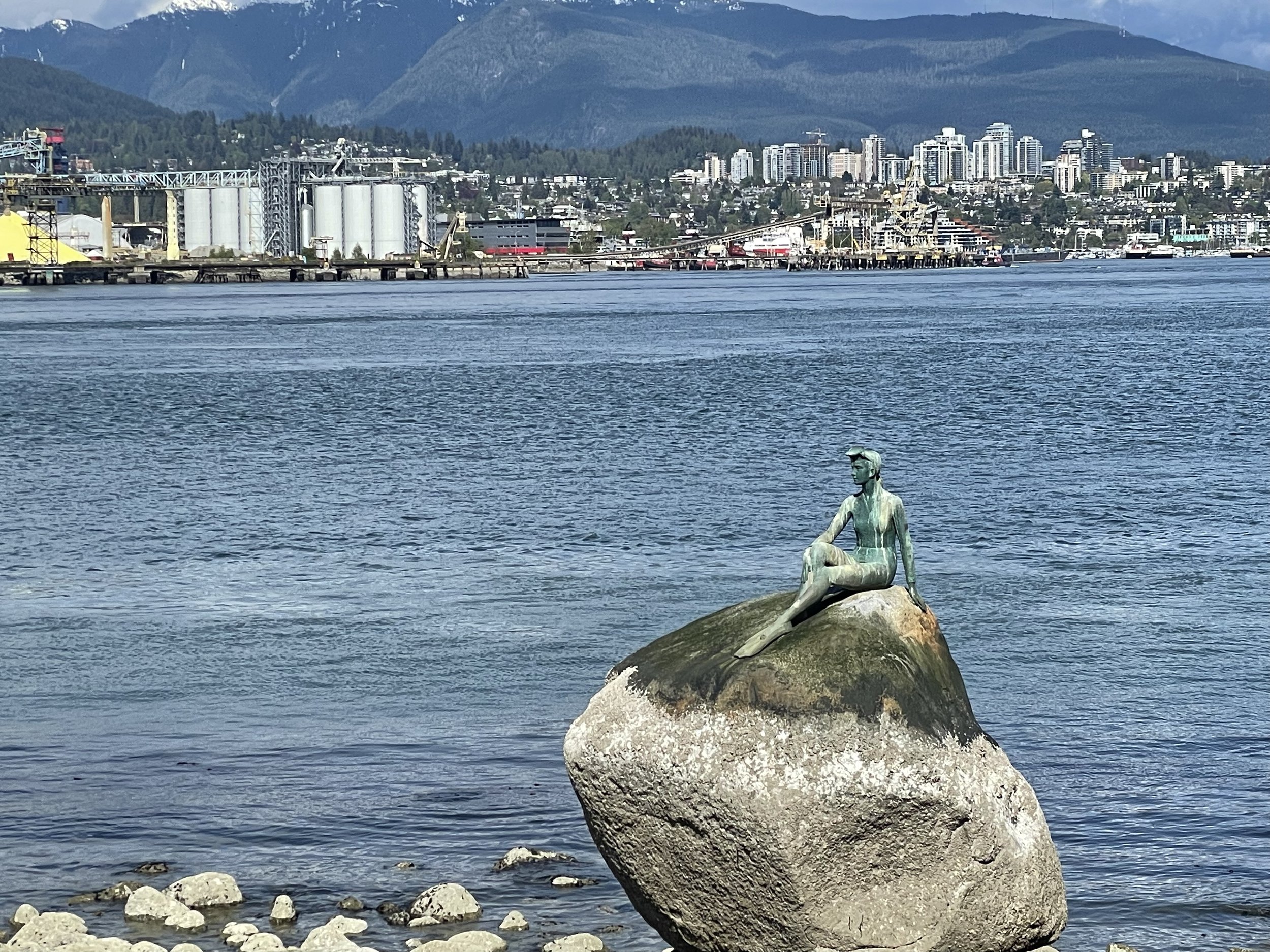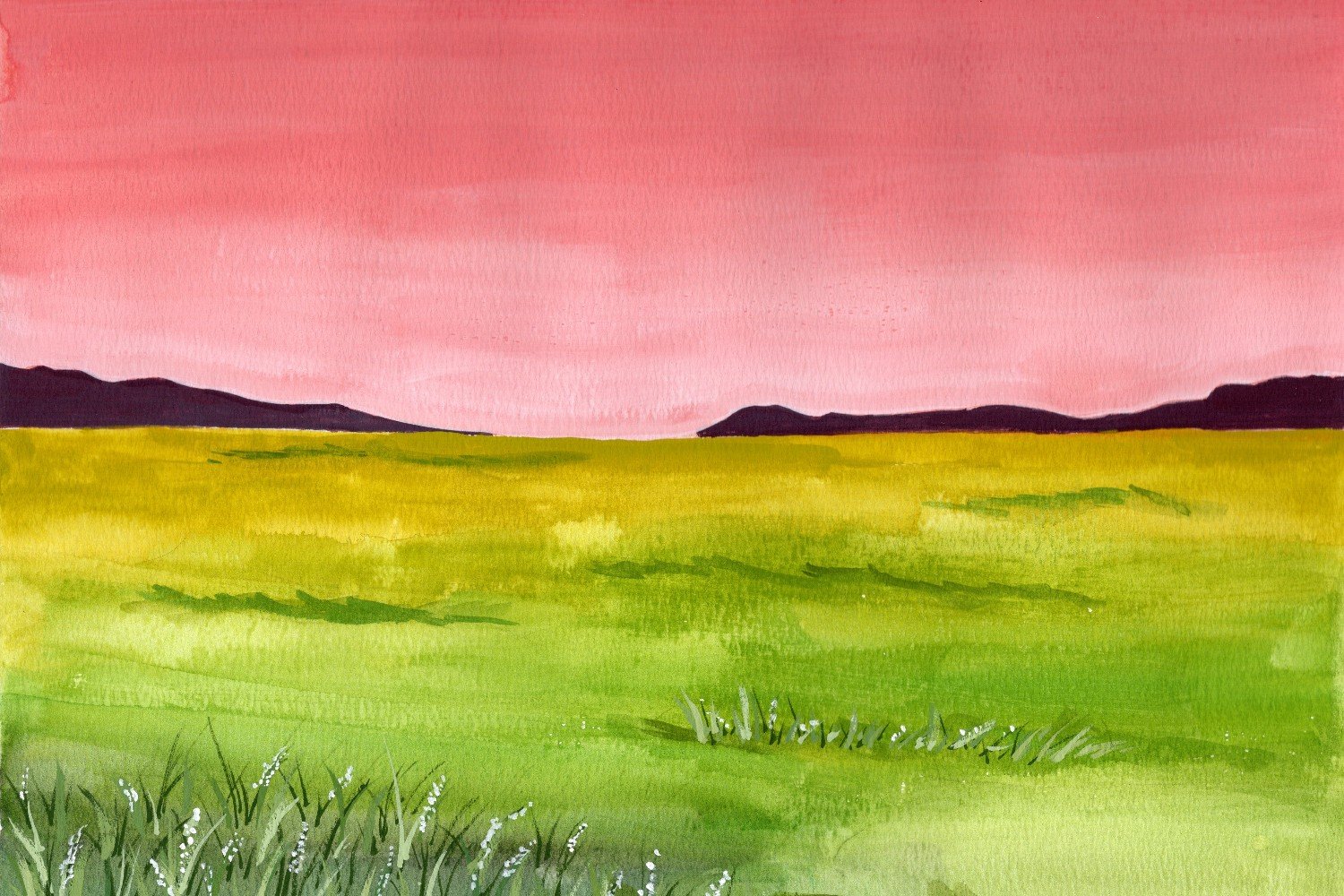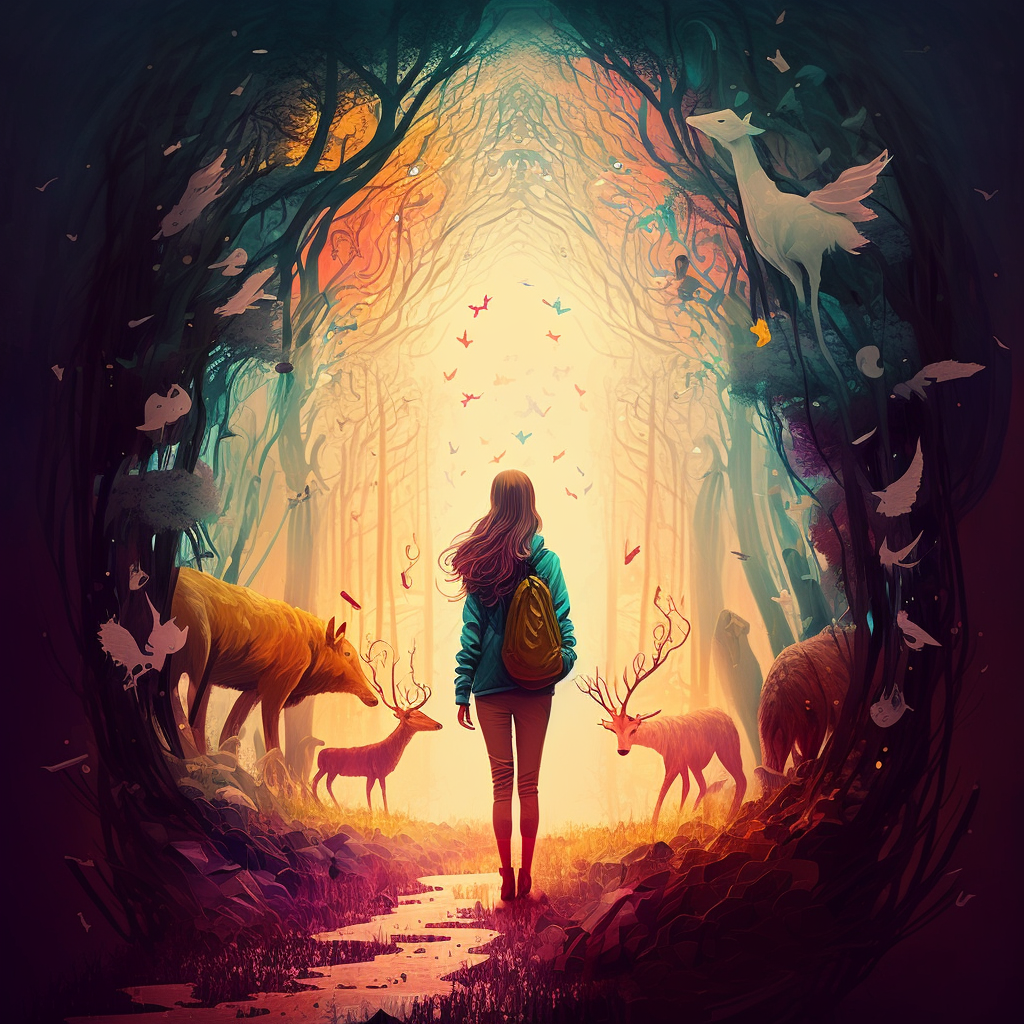On Writing Freely and Revisiting The Artist's Way
Watercolor painting by me
It's late February, and the days are getting longer and less depressing here in the Pacific Northwest. I've got the gardening bug in full force because we redid our backyard last year and put in a couple of raised beds so I can grow a vegetable garden this spring after many years without one. I'm super excited and have been watching many gardening YouTube videos.
Last month, I wrote about focusing on writing a book and letting go of trying to build a business out of writing. I put undue pressure on myself, trying to produce consistently for an audience. I frequently struggled to be "good enough" for others. I wanted to see what would happen if I only wrote what felt good and did not conform to expectations.
The result has been as I'd hoped. Letting go of making money from writing wasn't just about money, of course, but the validation and status that came with it since our society values people based on money. When I let go, I freed myself to write what pleased me rather than what I thought others wanted to read. I worried less about appearing wise or insightful enough and instead let me be myself. I became more in touch with my feelings, which were sometimes elusive because my anxieties came from a deep-seated fear that I may not be good enough to do this. So, I avoided those feelings and stuffed them down, which kept the anxiety in place. But my writing is all about emotions and feelings. When I'm not in touch with my feelings, the words become stiff or grind to a halt. When I removed the pressure of being "somebody," I no longer had to avoid my fears. But I also had less to fear because the stakes were no longer so high. Ironically, the more I could sit with my fears, the more my words flowed.
As a result, in January, I had one of my most productive writing months in a while. Not having to write in a shorter format allowed me to really explore where my creative urges take me without worrying about whether I'm going off on a tangent (when you're writing a book, all details are welcome). But more importantly, writing has become fun again. For me, writing is about being intimate with myself and sharing my fascinations. My joy returned when I let those things be my core reason for the work -- not money or validation. My anxieties did show up once or twice, but it has been much easier to manage. The dread I used to live with has yet to return for two months.
My progress in February has slowed since I'm grappling with bigger concepts like I did with my Calm Path series. Even though I've been applying these concepts for a while, I have to understand them more comprehensively to explain them to others. The path to that understanding can be steep, and I often contemplate a question for days before a clear picture comes to me. However, since I am not under a deadline, this process has been playful rather than anxiety-inducing.
Revisiting The Artist's Way
In February, I decided to revisit Julia Cameron's classic The Artist's Way after talking with a friend who started reading it for the first time. I first read part of it in 2009 and remember religiously waking up at 6 am to write my morning pages. I re-purchased it a couple years ago after I first got my book idea, which is also about recovering creativity. I'd read a few pages and stuck a bookmark in it, and it's been collecting dust on the bookshelf since. Back then, I secretly feared reading works similar to mine, fearing that my ideas wouldn't be good enough.
It's fascinating revisiting The Artist's Way after so many years. I didn't get past more than a few chapters the last time, but I can tell that I wouldn't have fully understood it back then. Many of the lessons were reminiscent of the growth work I've integrated in the intervening years with the help of other teachers and healers -- lessons on boundaries, surrender, practicing encouragement, self-compassion, following creative flow, separating my worth from how much money I make, and so on. The book would've been a great help if I'd reread it two years ago since I was still struggling with creative anxiety at the time. But I learned the same lessons from other sources, so it was all good.
I've started doing the morning pages again because of rereading the book, though not daily, and only sometimes in the morning. It's teaching me to write more freely on the page without over-editing, a challenge I've always had. I've started practicing more stream-of-consciousness in my book writing, letting myself write that "shitty first draft" instead of trying to write a coherent draft on the first go. What ends up happening is when I get stuck, I keep trying to work it out in my head or question and delete what I've written. This habit stops the flow of ideas. Instead, if I just write down that shitty sentence and keep going, eventually, something good comes through that wouldn't have if I'd stopped the flow.
The Artist's Way's creative recovery process is shockingly similar to what I'm writing about. But the similarity is validating since it tells me that the process I've been through would likely work for others. I would've found these similarities threatening in the past as I was still mired in my insecurities. "Who am I to write about creative recovery if a classic has already been written?" But I know the value I bring to the table now after the self-acceptance work I did last year, and I no longer pit myself against others. For that, I'm really grateful.
Compared to The Artist's Way, I understand creativity from a more agnostic interpretation based on neuroscience and psychology and less as a "God-given" right. However, the two interpretations don't conflict. I also come from a more healing-based rather than a spiritual approach, with less reliance on affirmations and prayer. For instance, I prefer to explore the source of a belief like "I'm not good enough" and change the paradigm from the ground up rather than use affirmations to convince myself I am. But my recommendations for self-acceptance, encouragement, surrender, and playfulness are all in there. If I were reading this at 28 years old instead of 42, those concepts would've gone over my head. And I definitely would not have accepted that creativity requires surrender!
Overall, The Artist's Way is still a very relevant and beautifully written classic, and it would be helpful for anyone seeking more creativity and inspiration in their lives. Give it a read while you wait for me to finish my book.
Thanks for reading! I’d love to hear your thoughts. Let me know down below!






























